Nam Long Group's effective international integration strategy bears fruits
This strategy has transformed Nam Long from a family company into a real estate group that is consistently among the top 10 players in the market.
The real estate market has undergone multiple changes since the new Land Law, Housing Law, and the Law on Real Estate Business took effect on August 1.
Some new regulations include buyers paying 70 per cent for a prospective house, and project developers being allowed to collect a deposit of no more than 5 per cent to enhance safety for buyers and market sustainability. At the same time, developers must ensure financial stability and transparency during project implementation.
In this context, Nam Long is regarded as a pioneer in applying strategies to develop the real estate market sustainably. In addition to developing products that satisfy real social demand, Nam Long's sustainable development strategy features a well-conceived capital usage plan.
To maintain a reasonable debt-to-equity ratio, Nam Long has set forth a strategy to cooperate with global players in the field.
In doing so, Nam Long has sourced stable funding to ensure project progress, providing favourable policies for buyers, and maintaining sustainability and stability for all parties.
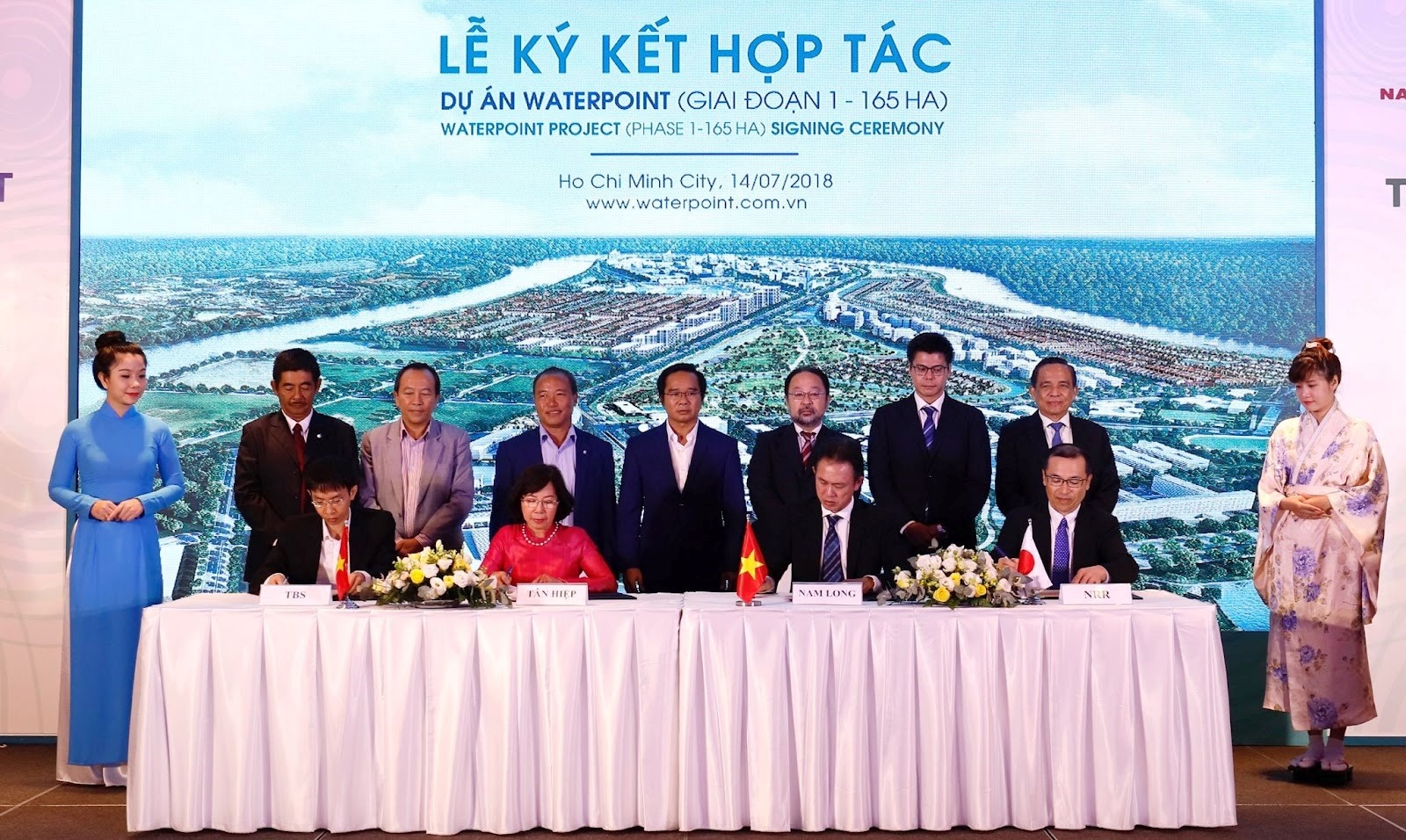 |
| Nam Long Group signs a cooperation agreement with Nishi-Nippon Railroad, Tan Hiep, and TBS Group to develop the Waterpoint project phase 1 in 2018 |
Beginning with the segment for homebuyers with actual housing needs, the group has been applying its internationalisation strategy towards sustainability and transparency for over a decade.
Being proactive in international integration strategy
Established in the early 1990s, Nam Long was one of the first few non-state construction businesses in Vietnam, with initial capital of only VND700 million (now $29,000).
In just three decades, that family company has grown into an enterprise with assets totalling more than VND28 trillion ($1.16 billion).
In addition to positive business results, Nam Long has made a deep impression on the market thanks to its internationalisation strategy, and successful capital mobilisation in the international market.
The group has developed long-term relationships with shareholders and strategic partners, including prestigious organisations such as Goldman Sachs, Mekong Capital, IFC (World Bank), Iberworth (Keppel Land), Hankyu Hanshin Properties, and Nishi-Nippon Railroad, among others.
These steps are parts of Nam Long's international integration strategy, which Nam Long's leadership has been gradually laying the foundations for and strengthening for over a decade.
Nam Long took the first step towards integration in 2008 by collaborating with foreign partners to be proactive with financial resources and reducing risks associated with interest rates and market changes.
That year, shortly after Nam Viet Company (fully financed by US bank Goldman Sachs) and ASPL fund (Ireka Corporation, Malaysia) were invited to become strategic shareholders, Nam Long raised $15 million in long-term capital from foreign organisations for the first time.
Immediately after, a series of world-class names, including the VAF Fund managed by Mekong Capital, and IFC under the World Bank, expressed appreciation for Nam Long's potential and sustainable development strategy, and also decided to fund the group.
Leading companies in the region, including Keppel Land, a multinational firm based in Singapore, became strategic shareholders in Nam Long in 2015 after purchasing 7.1 million shares through a private placement among major global financial institutions and enterprises.
Nam Long was the first business in Vietnam to acquire funding through an equity investment from Keppel Land Group. With more than an 8 per cent stake, Keppel Land remains one of Nam Long's strategic shareholders today.
Nam Long was chosen by two Japanese corporations with hundreds of years of combined experience - Hankyu Hanshin Properties and Nishi-Nippon Railroad - in 2015 as they entered the Vietnamese market.
Throughout their ten-year partnership, Nam Long and its two partners have enjoyed many ‘sweet fruits.’
Projects with a Japanese flavour, like Flora Anh Dao, Fuji Residence, Kikyo Residence, Mizuki Park, and Akari City, have supplied thousands of units to the Ho Chi Minh City real estate market.
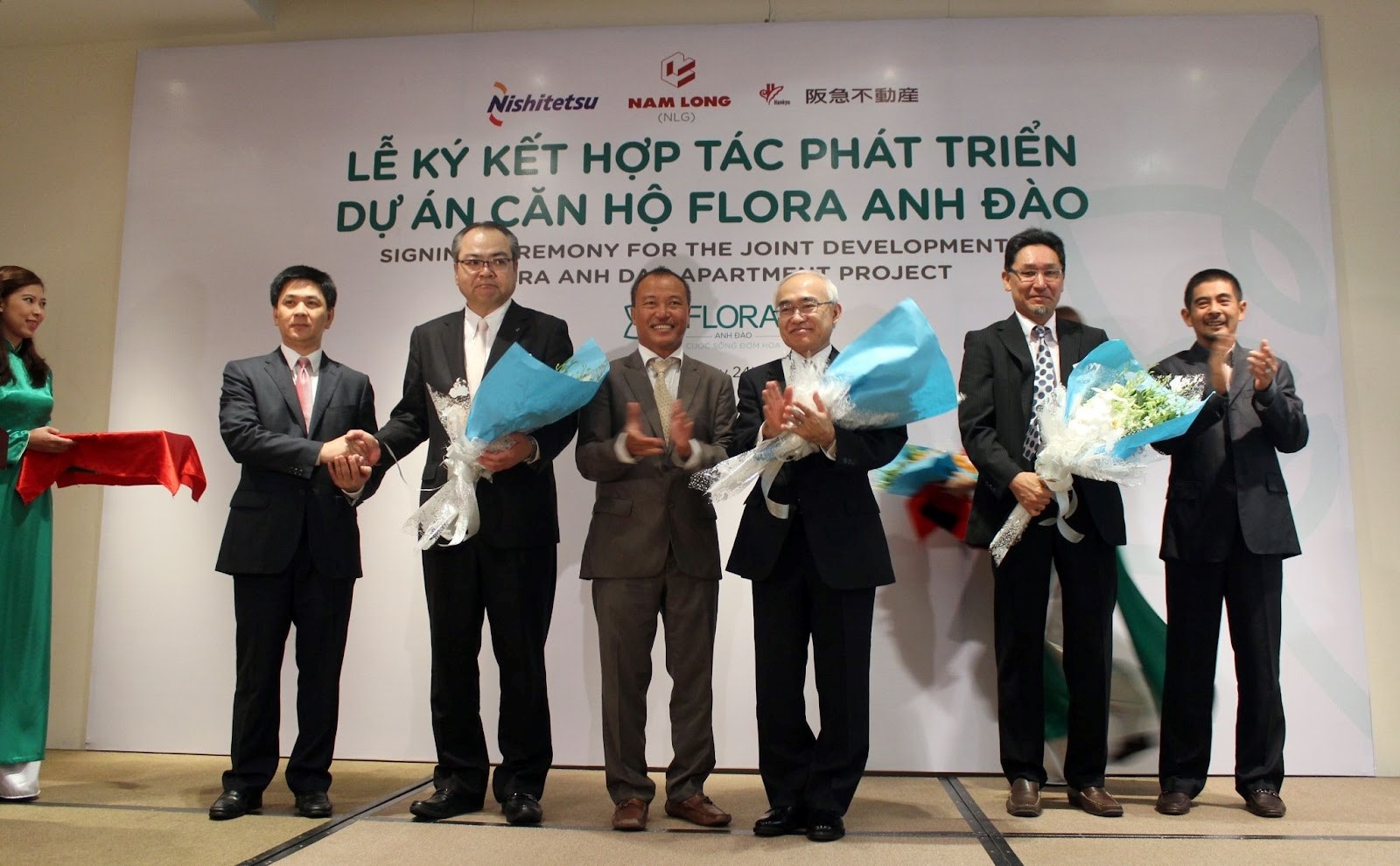 |
| Nam Long Group has established a decade-long relationship with Japanese partners in the development of key projects |
The cooperation relationship between Nam Long and the two Japanese partners has evolved to a new level with the collaborative implementation of large-scale integrated townships like Waterpoint (phase 1 involving 165ha), and Izumi City (170ha). Nam Long's prestige and reputation are attested to by its more than two decades of cooperation with Japanese partners, renowned for their strict requirements and professionalism.
Strategy to go further
Foreign partners have brought abundant investment capital from international investment funds, helping Nam Long to enhance its potential, strengthen financial stability, and implement many large projects simultaneously.
For this reason, a recently released report by FiinRatings, Vietnam's leading entity in credit rating, rated Nam Long's prospect as ‘Stable,’ with its business capacity at a good level and its financial risk at a medium level.
This entity expressed that the real estate group could maintain a good competitive position compared to other businesses in the same sector thanks to its flexible capital turnover and circulation.
Selective collaboration with experienced international partners has improved not just the financial potential, but also the added value of Nam Long’s products.
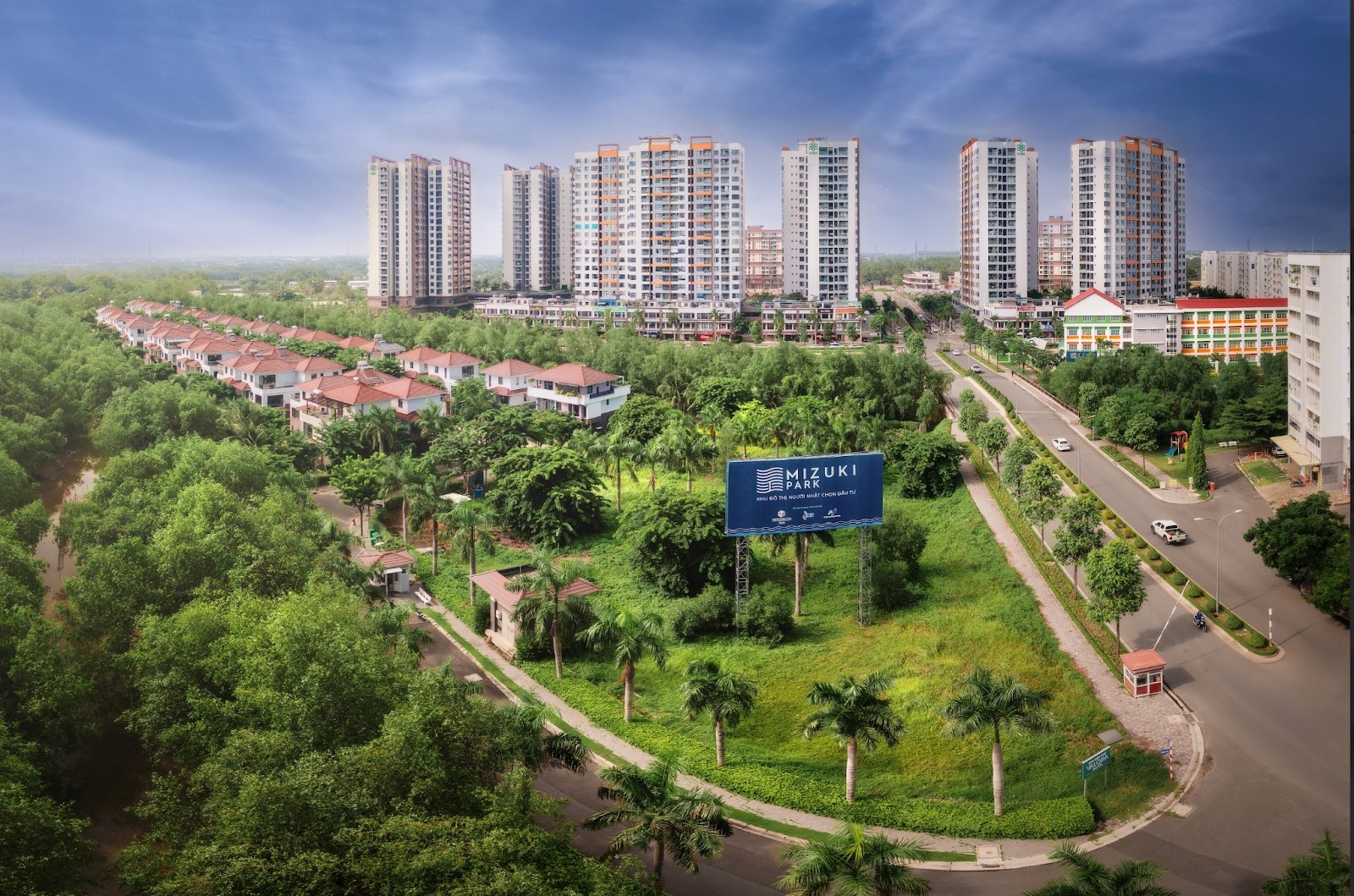 |
| Mizuki Park- a modern township in Ho Chi Minh City- is one of the ‘sweet fruits’ of cooperation between Nam Long Group and Japanese partners |
Through the support of foreign partners, Nam Long has progressively strengthened its position and improved its brand from the perspectives of partners, customers, and investors.
The group's initiatives have demonstrated quality and development potential, as evidenced by the presence and long-term commitment of major partners.
Nam Long's reputation and brand value have been consolidated in the domestic market and spread internationally, creating a solid foundation for future development.
The handshakes with foreign partners are also clear evidence of Nam Long's capacity to meet the strict standards set by these ‘giants’ as investments from international organisations and partners often have stringent requirements, clearly stating the principle of ‘try before you trust.’
The greatest achievement in Nam Long's 32 years of development, according to Nguyen Xuan Quang, chairman of Nam Long’s board of directors, has been building an enterprise that is poised for growth and international integration.
He also emphasised that integration was not simply about culture, business model, and business policy, but involved the entire organisation, from the management board to the entire apparatus.
The ‘internationalisation’ strategy was recently strengthened when Lucas Ignatius Loh Jen Yuh, who has over 30 years of experience working at top Asian organisations and businesses, was appointed CEO of Nam Long.
Lucas held diverse high-level management positions for 20 years at CapitaLand in China, IRAS (Inland Revenue Authority of Singapore), Temasek Holdings (a global investment corporation owned by the government of Singapore), and Hopson Real Estate Corporation, among others.
With this decision, Nam Long has taken into consideration more significant stages in the process of strengthening and enhancing its international integration strategy. Over two decades since the leader of the group created this concept, a solid foundation has been laid for successive development phases with a new, deeper integration ladder, attracting more and more prestigious shareholders.
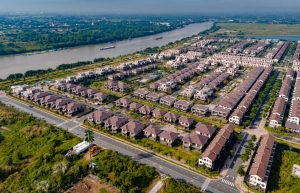 | Nam Long Group maintains top ten position in real estate investment ranking Nam Long Group has been ranked in the top ten real estate investors in 2024 by survey firm Vietnam Report. |
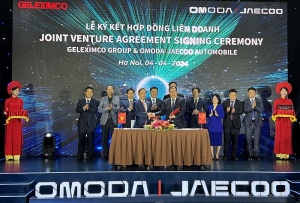 | Geleximco Group and Chery International enter automobile joint venture Geleximco Group and Chery International on April 4 signed an agreement to set up a joint venture to build an automobile factory in Vietnam. |
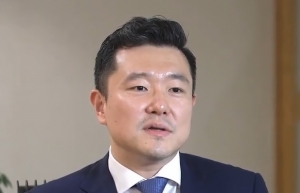 | An effective transition towards becoming net-zero powerhouse Vietnam finds itself at a crucial crossroads. As a burgeoning manufacturing powerhouse, the nation faces the urgent need to significantly slash its greenhouse gas emissions while striving for net-zero status by 2050. |
What the stars mean:
★ Poor ★ ★ Promising ★★★ Good ★★★★ Very good ★★★★★ Exceptional
 Tag:
Tag:
Related Contents
Latest News
More News
- Construction firms poised for growth on public investment and capital market support (February 11, 2026 | 11:38)
- Mitsubishi acquires Thuan An 1 residential development from PDR (February 09, 2026 | 08:00)
- Frasers Property and GELEX Infrastructure propose new joint venture (February 07, 2026 | 15:00)
- Sun Group led consortium selected as investor for new urban area (February 06, 2026 | 15:20)
- Vietnam breaks into Top 10 countries and regions for LEED outside the US (February 05, 2026 | 17:56)
- Fairmont opens first Vietnam property in Hanoi (February 04, 2026 | 16:09)
- Real estate investment trusts pivotal for long-term success (February 02, 2026 | 11:09)
- Dong Nai experiences shifting expectations and new industrial cycle (January 28, 2026 | 09:00)
- An Phat 5 Industrial Park targets ESG-driven investors in Hai Phong (January 26, 2026 | 08:30)
- Decree opens incentives for green urban development (January 24, 2026 | 11:18)





























 Mobile Version
Mobile Version